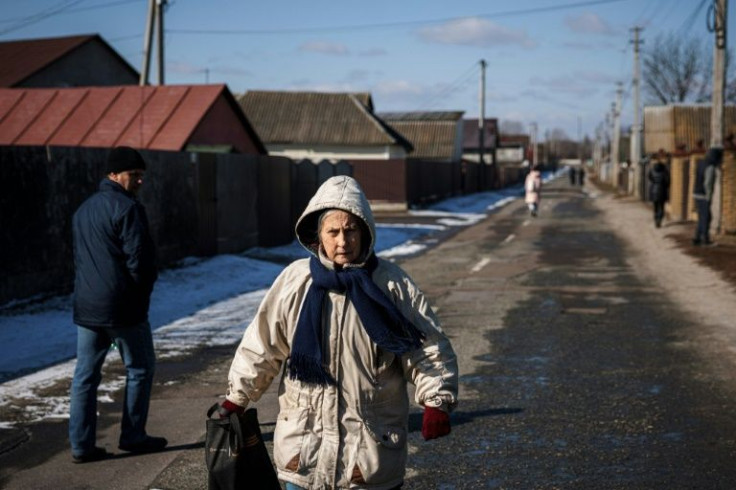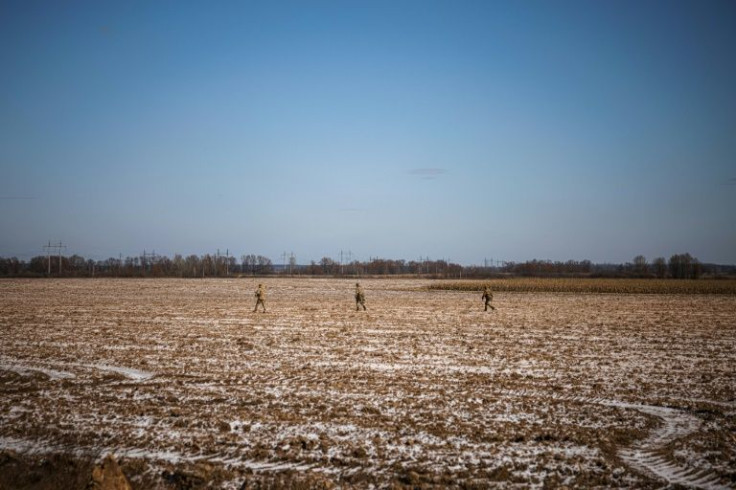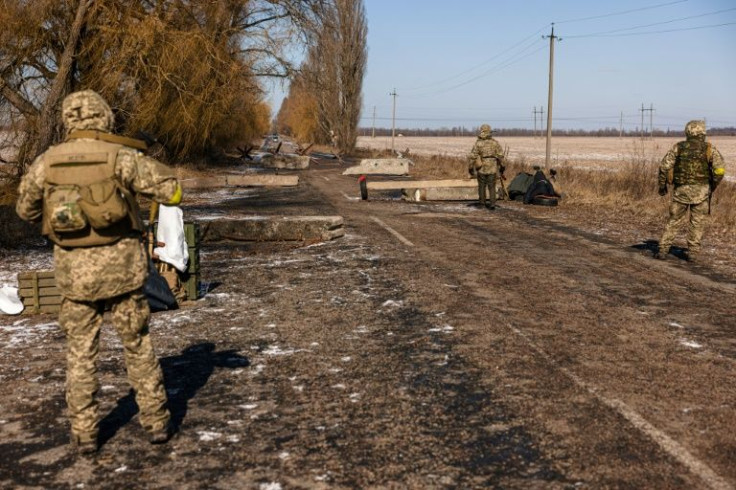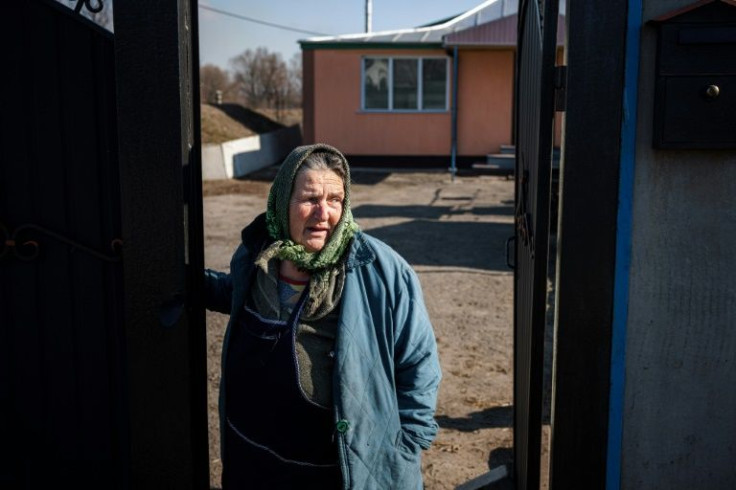No Man's Land: Russians Lurk In Fields At Kyiv's Gate
Five shivering Ukrainian soldiers and a Javelin anti-tank missile stood by the last checkpoint separating the northeastern edge of Kyiv from advancing Russian armoured vehicles.
A burst of Grad missile fire from a Russian position further out on the sunny horizon kicked up a cloud of dust a few hundred metres from the freezing defenders.
Advertising salesman Vasyl Popov craned his neck out the door of the local food mart and sighed at the sight of war coming to his hometown.
"The Russians were here last night, shooting," the 38-year-old said.
The bitterly cold wind made his tired eyes water as he studied the road for possible signs of the Russian advance.

"I barely sleep," he said in a near-whisper.
"The moment there is the slightest sound, you immediately run to the window to see what it is, wondering if someone is about to come in."
The Russians are knocking on the gates of Kyiv, two weeks into their assault on Ukraine.

Kyiv's northwestern edge has witnessed more than a week of ferocious bombardments that have levelled parts of towns.
Tens of thousands have braved near-constant shelling to flee to the relative safety of the Ukrainian capital from working-class towns such as Bucha and Irpin.
But Kyiv's northeastern outskirts had been largely safe -- until now.
Popov's village of Velyka Dymerka rests about five kilometres (three miles) from Kyiv's city limits.
Its northwestern corner runs into a highway that the Russians are using to try to push through into the capital itself.

The big road was littered on Thursday with the remains of a Russian armoured column that the Ukrainian forces had partially destroyed and repelled.
But the Russians did not move very far back.
"There were Grad missile attacks and bombardments here last night," a soldier who agreed to be identified only as Serghiy said near the Velyka Dymerka checkpoint.
"We are evacuating the grandmothers," he said. "But they don't want to come out."

The Javelin anti-tank missile resting under a tree by the checkpoint was the lightly-armed Ukrainian soldiers' last line of defence.
The US and its NATO allies have stepped up weapons deliveries to Ukraine in a bid to repel the Russian advance.
But the Western assistance does not appear to have won over the locals' hearts and minds.
"If NATO is such a powerful organisation, why aren't they closing the skies over Ukraine," pensioner Grigoriy Kushka demanded in an exasperated voice.
"Why haven't we been able to sleep at night? Why is my family, my little girl, the children, why are we running from cellar to cellar?"
A group of Ukrainian soldiers warmed their hands and cooked a meal around a bonfire by the roadside as Kushka spoke.
Their position was perilously exposed to the Russian threat.
But the US-led defence alliance has refused to send in warplanes due to fears that this could trigger an even bigger war between Russia and the West.
The less-developed northeastern edge of Kyiv is filled with fields and open roads that offer little physical resistance to Russian tanks.
Locals who have not fled the area spend much of their time hiding behind simple gates that surrounded their wooden houses.
Pensioner Valentyna Rut was feeding her chickens while contemplating death.
"I am not afraid of dying. I am frightened for my children and grandchildren -- nothing else," the 75-year-old said.
"Why would I run away from my own home? Where would I go? My parents were born here. I am not afraid of anything," she said.
Local computer repair man Roman Taranenko sounded equally resolute.
The 47-year-old conceded that he was now living in the dangerous no man's land splitting the Russians from government-controlled lands.
But he scoffed at the idea that Kremlin forces would ever be able to truly capture Kyiv.
"Even if they enter Kyiv, what are they going to do? How are they going to hold on to power," he asked.
"People would be shooting at them from every house, burning their vehicles," he said. "They will never hold on to power -- not even with assault rifles."
© Copyright AFP {{Year}}. All rights reserved.





















